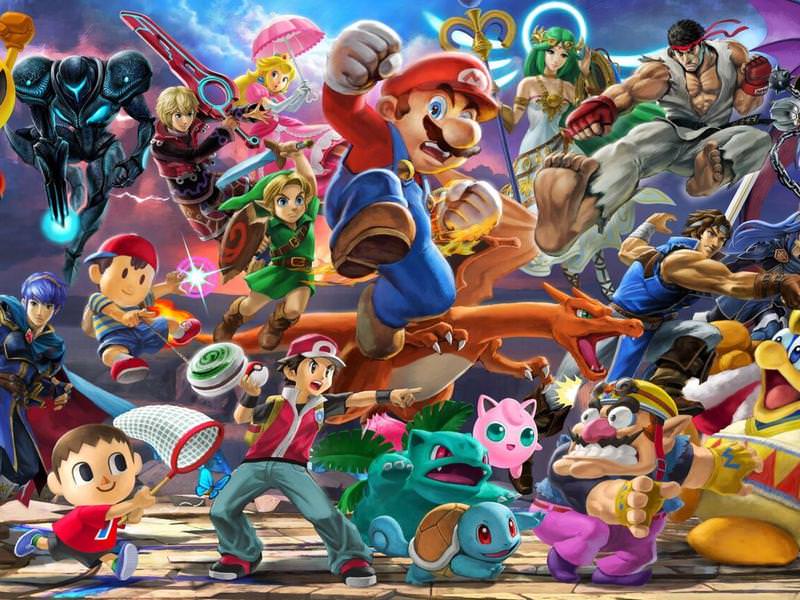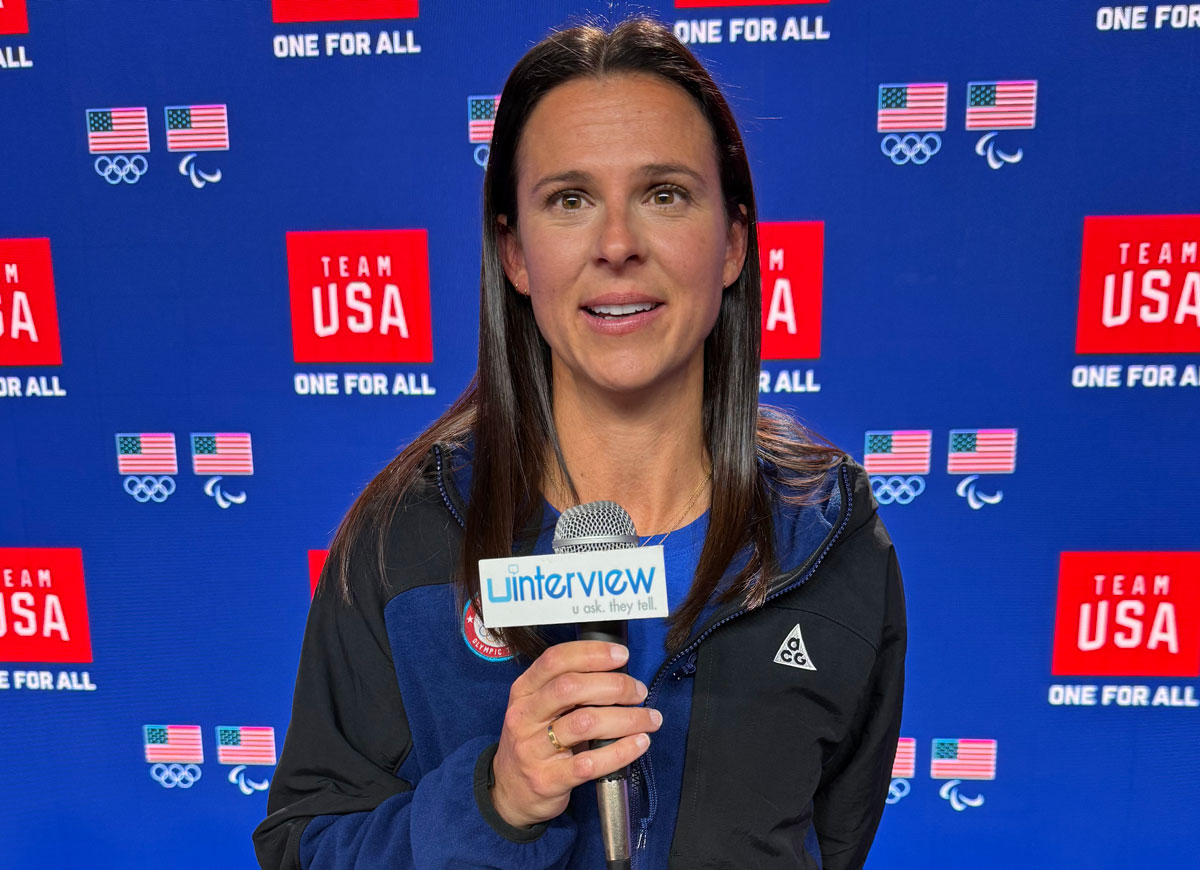‘Super Mario Odyssey’ Game Review: You’re Still Super, Mario!
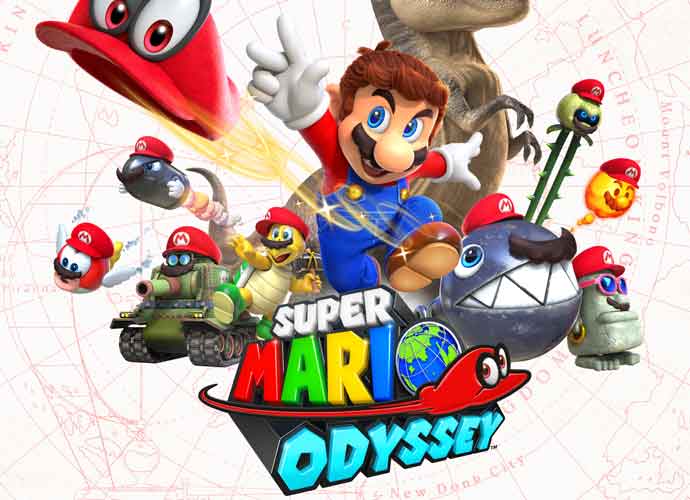
Super Mario Odyssey
Super Mario Odyssey is the latest mainline installment in Nintendo’s premiere franchise. Developed by Nintendo EPD, the studio is composed of several people who’re experienced with the series, including Yoshiaki Koizumi, Koichi Hayashida and Kenta Motokura.
Nintendo’s latest 3D platformer launched last October, and it recently received an update, affixing more content into an already loaded package. But, once you look past the excitement and hype, is Mario really still super, or is the longstanding mascot finally starting to show his age?
SUPER MARIO ODYSSEY GAME REVIEW

Super Mario Odyssey’s opening plays out familiarly, with Mario and Bowser engaged in a round of fisticuffs aboard one of the turtle’s airships. Princess Peach, whom Bowser has kidnapped once again, and her new friend Tiara are rooting for our hero, but he’s ultimately knocked overboard. Victorious, Bowser shreds his foe’s iconic red hat and proceeds to prepare for his wedding with the reluctant Peach. Mario lands in the grayscale Cap Kingdom, soon becoming acquainted with Cappy, a docile resident of the domain who is nevertheless resolved to save Tiara, his sister. Since Mario’s and Cappy’s goals overlap, they team up and head out on their globe-trotting adventure, encountering many disparate cultures and people along the way.
Slideshow: Check Out 16 Best Grammys Looks!
Mario, as usual, is a joy to play as; his momentum and weight make sense, and anyone who’s accustomed to his previous 3D adventures will seamlessly adjust to Odyssey’s setup. If this is your first 3D Super Mario title, rest assured that you will become comfortable using Mario’s basic skills by the time you leave the Cap Kingdom. Many of Mario’s stalwart maneuvers from his prior 3D outings – such as the triple jump, side somersault and rolling – return, giving the portly plumber plenty of ways to transverse the environment at any given time.
Nintendo aims to make their titles accessible, and Odyssey efficiently achieves this by locking all of Mario’s interactive actions to one button; Cappy isn’t just there to provide exposition, he’s an all-purpose tool. The ghost-like entity inhabits Mario’s hat, repurposing his well-worn headwear into Odyssey’s primary gameplay innovation. Need to attack an enemy or flip a switch? Just toss Cappy. Furthermore, Cappy can be tossed in a variety of different ways and angles, the efficiency of which can be enhanced with the Switch’s motion controls. And one of Cappy’s most welcomed additions is the ability to hold Mario’s hat in place after it’s tossed to be used as a spring for Mario to jump off of.
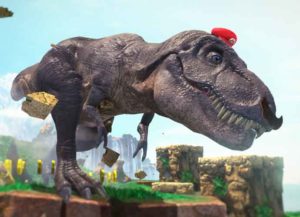
Moreover, Cappy arms Mario with Odyssey‘s main attraction: possession. In lieu of Mario’s usual power-ups, Odyssey lets the cooperative mascot directly control some of the entities he’ll come across, most of which hail from the game’s enemy lineup. Unlike Mario’s previous transformations, which generally augmented Mario’s moveset by virtue of you still being in control of Mario, Odyssey limits you to the movement capabilities and skills of whatever you possess. Often these are somewhat mundane abilities that may be used to solve a puzzle or platforming segment tailored around them, though some hosts (specifically two I don’t want to spoil) offer more elaborate skillsets.
Odyssey gradually teaches you how to use its alternative playstyles, similar to how 3D Land and 3D World taught the gimmicks in their levels; using the Wooded Kingdom’s Uproot enemy as an example, you initially encounter the creature in an open, safe location where you can play with it at your leisure before being forced to use it to progress, likely finding hidden collectables along the way. This escalates into the Kingdom’s boss battle, the Torkdrift, which demands mastery of the Uproots’ body-stretching ability. And on the topic of bosses, the final confrontation with Bowser is one of the most memorable moments in all of Mario’s 36-year history.
Nintendo openly acknowledged in Odyssey’s pre-release media how the game would harken back to the more open level design philosophy of Super Mario 64 and Sunshine, and Odyssey’s sizable sandboxes successfully channel its two forbears. Upon arriving in a new Kingdom, Odyssey implores players to trek through a path of missions, which in turn advance the Kingdom’s narrative while educating you of its general layout. Exploration is rewarded, however, with hidden Power Moons and other secrets abundantly scattered throughout the lands. And while the zones are large, you can instantly teleport to any of the checkpoints you’ve hit, meaning it never takes you long to get where you need to go. Additionally, fans of more traditional platforming à la Galaxy or 3D World will be glad to hear Odyssey contains segments akin to them too, frequently tucked away in the Kingdoms’ hidden rooms.
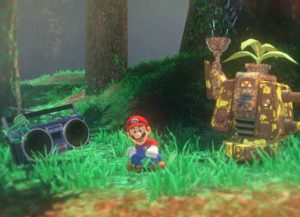
Power Moons are Super Mario Odyssey’s primary currency, and a requisite amount needs to be collected before you can progress to the next Kingdom. Hints are available to help you find the Moons you’ve yet to locate. Odyssey’s secondary collectable are the regional Purple Coins, and they can be spent in their correlating Kingdom’s store on Power Moons, items and cosmetics for Mario and his ship. Additionally, the iconic yellow Coins are accounted for, likewise functioning as currency in the stores. Unlike in prior Mario platformers, Odyssey forgoes the life system, instead penalizing you for dying by docking some of the Coins you collected.
As with Mario 64 through Galaxy 2, objectives are sometimes reused across Kingdoms. One recurring troupe of Koopa Troopas set up a race course in most Kingdoms, and your best time in each race is saved to an online leaderboard, inspiring replayability. However, enough of the Power Moons are tethered to uninspired errands, with New Donk City’s jump rope being the most arduous, and it will eventually feel like a grind if you want to obtain them all. Naturally, not every level is equal in quality or scope, but there’s a nice variety in layouts, elevation and environmental hazards between the domains. New Donk City, Odyssey’s emblematical level, is the most fun one to transverse, with the verticality of its skyscrapers loaning itself well to Mario’s toolset and the game’s mission statement.
And Luigi’s new Balloon World minigame compliments Super Mario Odyssey nicely. Once you’ve beaten the game, Luigi can be found casually floating near Mario’s Odyssey ship in every Kingdom. Chatting with him the first time will have him explain the self-explanatory “Find It” and “Hide It” modes, where you respectively find others’ balloons and hide your own, both of which are addicting. Performing well in either requires intricate knowledge of the Kingdoms and a strong handle of Mario’s moveset, so it makes some sense as to why you need to clear the story before Odyssey lets you partake in Balloon World. Playing well in Luigi’s optional minigame can also be an efficient way to win additional Coins, too.

Super Mario Odyssey has an incredible veneer of polish in not only its gameplay, but also in its presentation. A lot of nice aesthetic touches adorn the game, such as how every Kingdom has its own native bird that flies onto Mario during one of his idle animations. And, as per the norm for a mainline Mario title, Odyssey paves the way for a vivid, exciting future while crediting its series’ past. Pauline, Mario’s original lady friend, is the new mayor of New Donk City, both of which serve to honor the original arcade Donkey Kong, Mario’s introductory title. Mario’s bountiful costume lineup will contain a getup to please any fan of the franchise, featuring well-known outfits like Dr. Mario and Metal Mario to clothes hailing from more obscure sources, such as Qix, Mario’s Picross and even a Super Game Boy commercial from 1995. Another appreciated novelty is the aptly-named “Snapshot Mode,” giving players the ability to take and edit pictures of the scenic locations. It’s not something I’ve taken advantage of myself, but it’s entertaining to see people share their photos on social media.
Odyssey’s soundtrack, although not the apex of the series’ musical highs, is still nice, offering a variety of motifs that highlight the distinct moods in each Kingdom. “Jump Up, Super Star!” is the game’s main theme song, sung by Pauline, and it and its variations suit Odyssey flawlessly. The song, much like the game it represents, simultaneously treads new ground for the Super Mario series, being the first proper vocal theme in its discography while also honoring Mario’s past, given the melody’s callback to the original Donkey Kong‘s 25m theme.
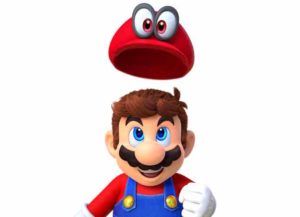
Super Mario Odyssey has received a lot of praise and it’s easy to see why. Even in a series known for innovation and quality, Odyssey is a commendable installment, one that propels Mario into a bold new direction. I wouldn’t argue Odyssey is Mario’s pinnacle, but I couldn’t fault anyone who believes it is. This is a well-realized piece of software that’s fun for people of any skill level.
